Dave Smith set out Wednesday afternoon from Baxley, Georgia, a small community in the southern part of the state, in his Toyota pickup and a trailer hauling more than 1,800 pounds of bees 1,300 miles north toward home in Maine.
But he didn’t make a beeline. Instead, he left busy Interstate 95 just below where the congestion starts in the Washington, D.C., area and took the longer, less traveled Interstate 81, mindful of the well-being of his $50,000 cargo. The last thing he wanted was to encounter a traffic jam and subject his bees to overheating.
“My main concern is to keep them as stress-free as possible. You need to keep the air flowing by them. If the weather is cool, it is definitely easier,” Smith said.
It’s a trip that Smith, owner of Sparky’s Apiaries in Hope, has made every spring for more than two decades, dropping off bees along the way to dozens of customers at several points in New Hampshire and Maine.
By Friday morning he had arrived at the Route 1 rest stop in Yarmouth, where customers, including backyard beekeepers, eagerly greeted him.
It was a hard winter on bees. Demand for the packages was brisk. He had sold out weeks before he made the run, said Smith, who has been keeping bees since 1980, long before backyard beekeeping took off as a hobby.
Pam Schlichting of New Gloucester was replacing all three of her hives, which died off this winter. She and her family have kept bees for 17 years, and never lose interest despite all the ups and downs.
“We are fascinated by them,” Schlichting said.
She said bees are generally easy to take care of, and the bee pollen and honey have medicinal properties.
Smith charges $118 per 3-pound package of bees, which includes a mated queen, although prices elsewhere usually run $10 or $15 higher. His own hives produce 5 tons of honey annually.
Jennifer Lund, the state apiarist and bee inspector, said southern Maine beekeepers took a big hit this winter. The drought last summer and fall put the queens under stress, as honey production fell because there were fewer flowers and the pesky Verroa mite, which kills honeybees, continued to thrive.
“So the queens didn’t lay as many eggs and the mites continued to increase,” she said.
Big temperature swings over the winter – with a string of 50- and 60-degree days and freezing nights – didn’t help the sensitive insects.
Backyard beekeeping took off in the past decade. In Maine, the number of registered hives doubled from 5,000 to 10,000 between 2006 and 2016, while the number of licensed beekeepers nearly tripled, according to Maine officials. Lund said there are about 1,000 registered beekeepers statewide.
Annual honey production can fluctuate widely depending on weather, pests and other conditions. In 2015, Maine hives produced 470,000 pounds of honey. Production fell to 408,000 pounds in 2016, according to the U.S. Department of Agriculture.
When Smith started making the bee runs two decades ago, he was the only one. Now there are about seven Mainers who make bee runs, some of them making the trip several times in a season.
Beekeepers say meeting Smith and his bees at the Yarmouth rest stop is an annual rite of spring.
“Georgia to Maine, here we go, another year, hopefully with a lot of honey,” Schlichting said.
Beth Quimby can be contacted at 791-6363 or at:
Twitter: QuimbyBeth
Send questions/comments to the editors.


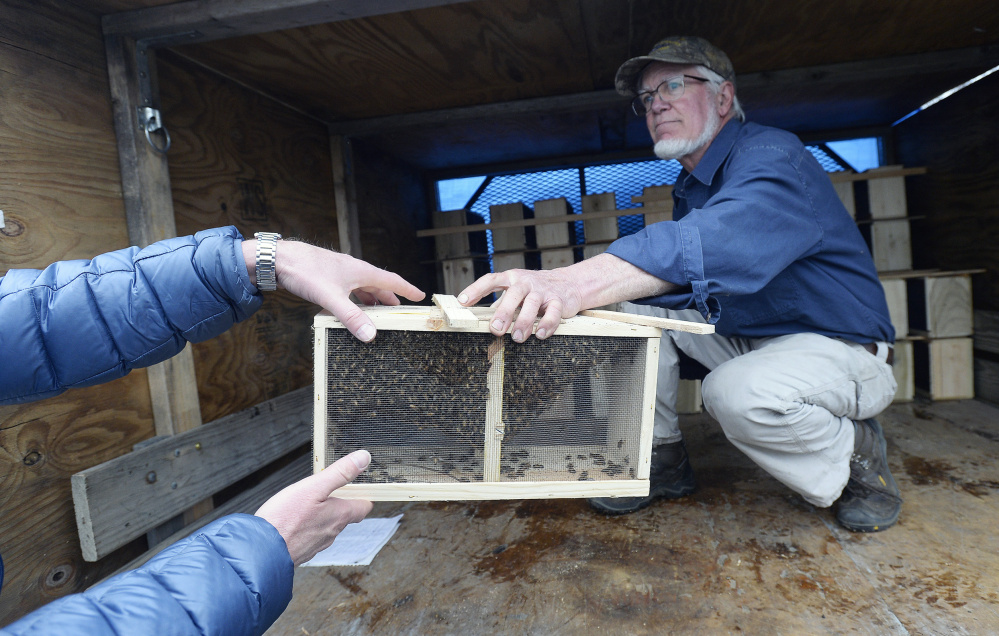
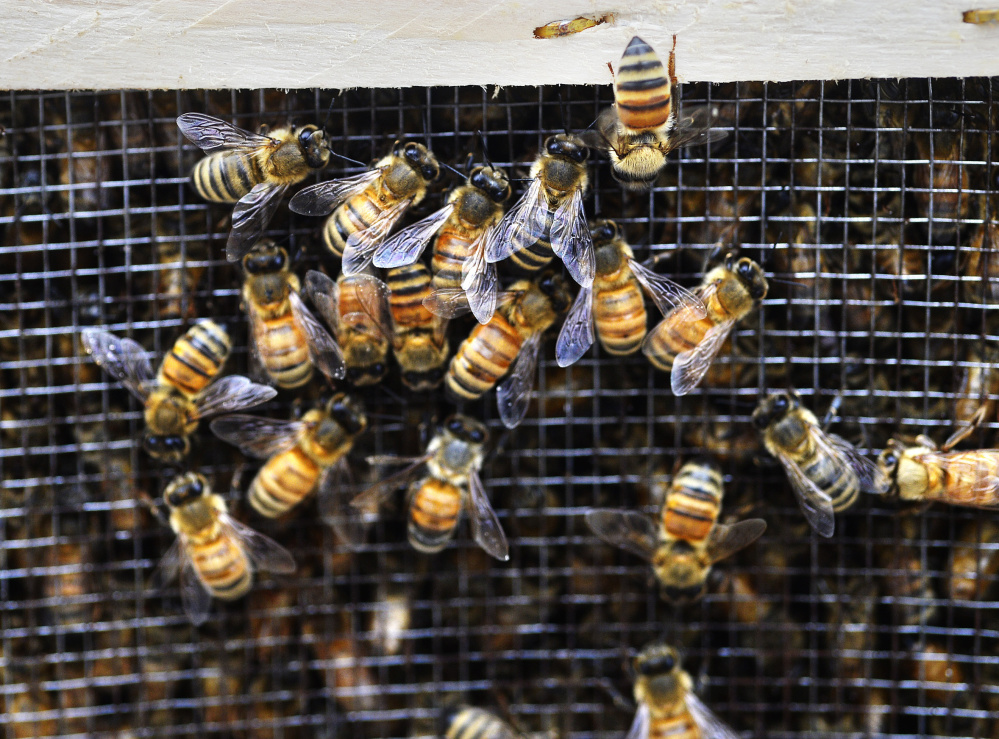
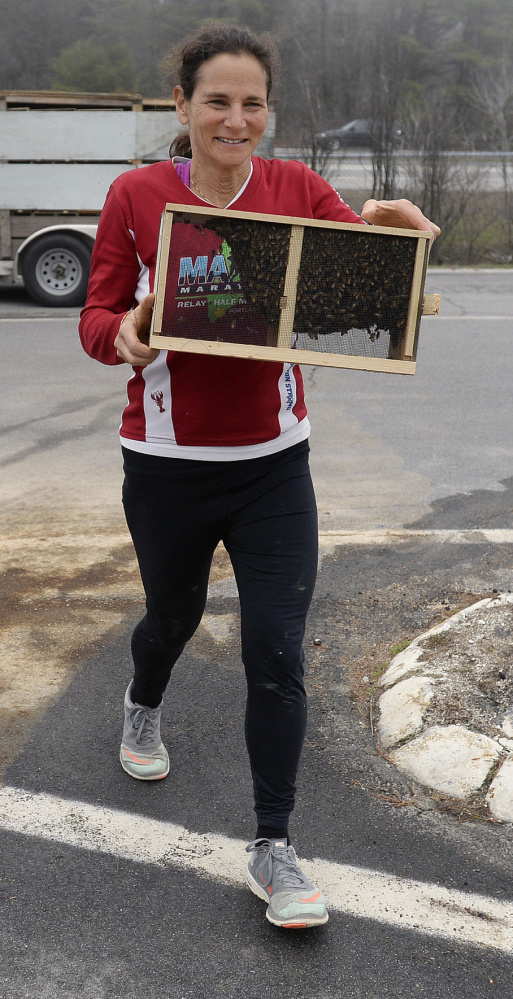
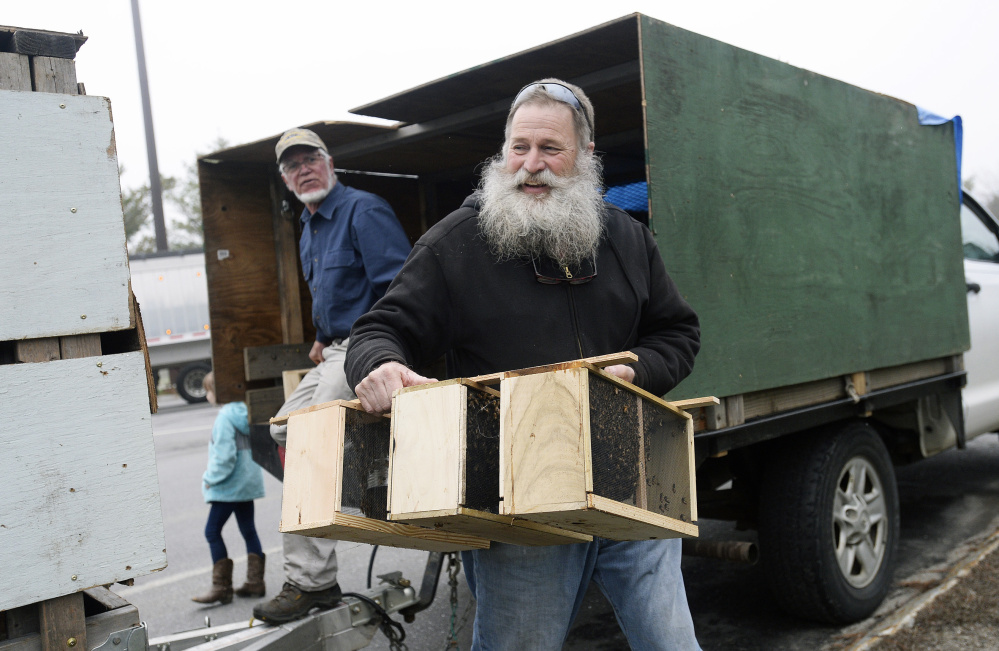
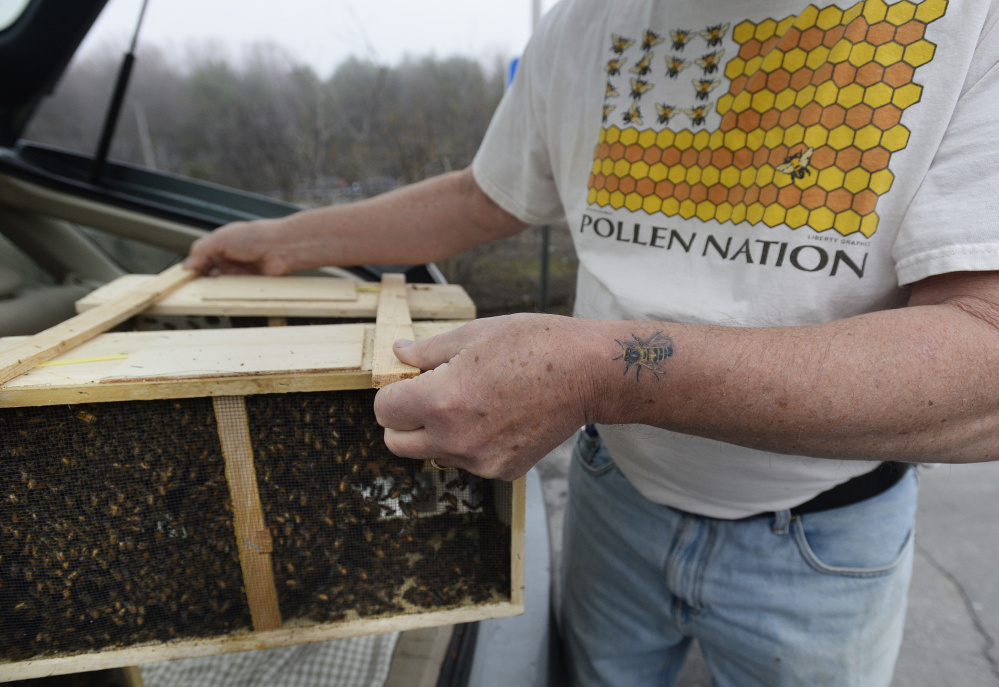

Comments are no longer available on this story